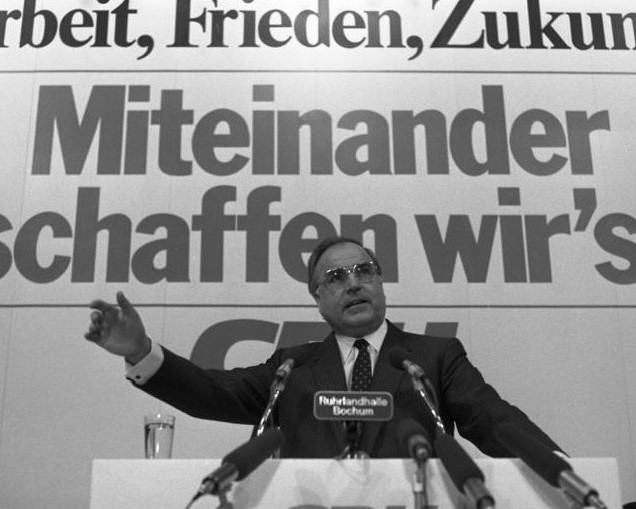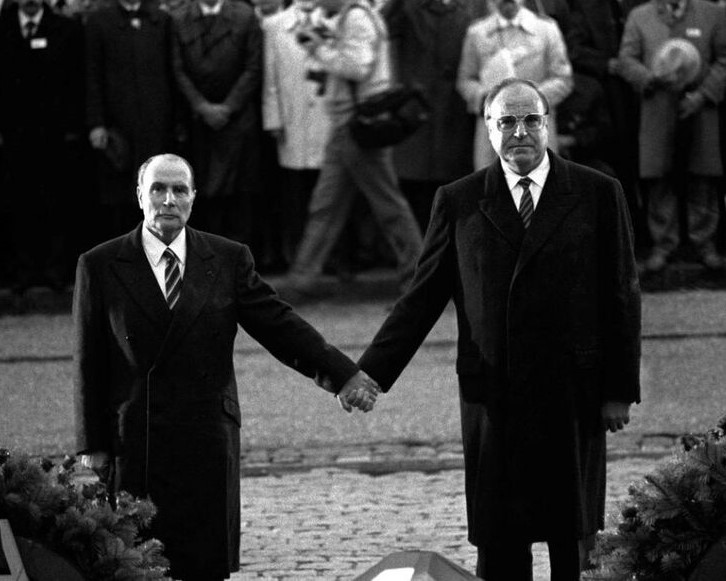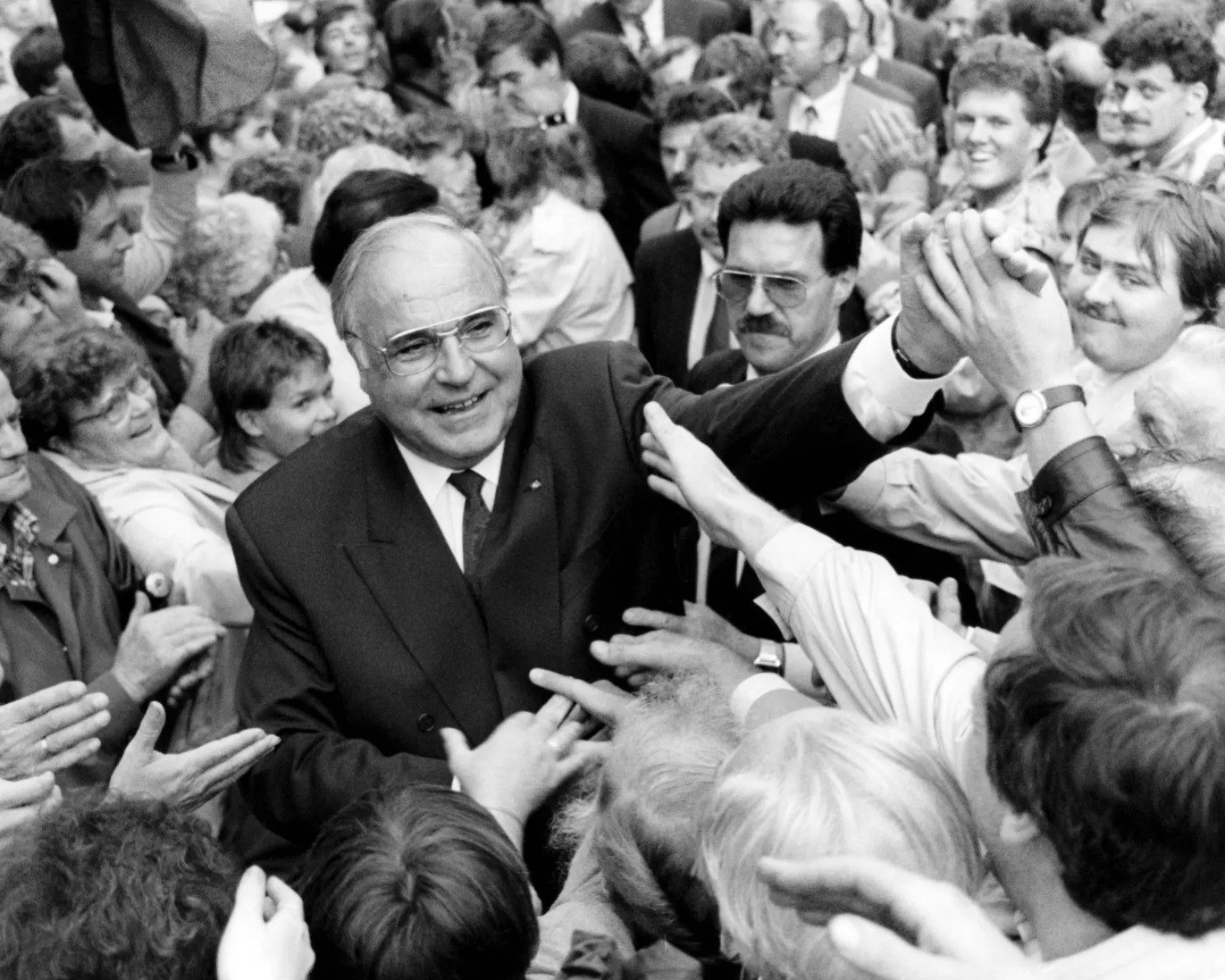Full name:
Helmut Josef Michael Kohl

"Leader in reconciliation"
Helmut Josef Michael Kohl
3 April 1930, Ludwigshafen, Bavaria, German Reich
16 June 2017 (aged 87), Ludwigshafen , Rhineland-Palatinate, Germany
- Helmut Kohl
George H. W. Bush called Kohl "the greatest European leader of the second half of the 20th century", while Bill Clinton named him "the largest figure on the continent of Europe for decades."

Kohl at a campaign event for the West German federal election, 1983

Chancellor Kohl and President Mitterrand standing hand in hand in front of a memorial wreath at the Douaumont Ossuary, Verdun, 1984

Helmut Kohl in 1990